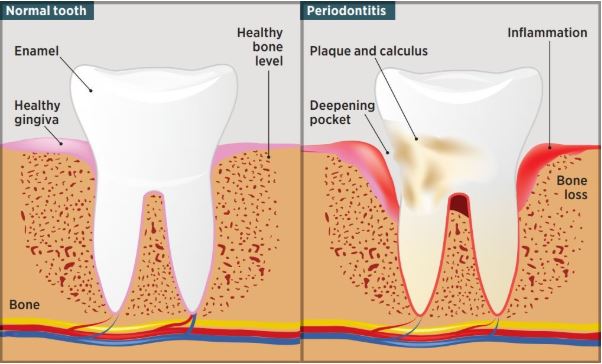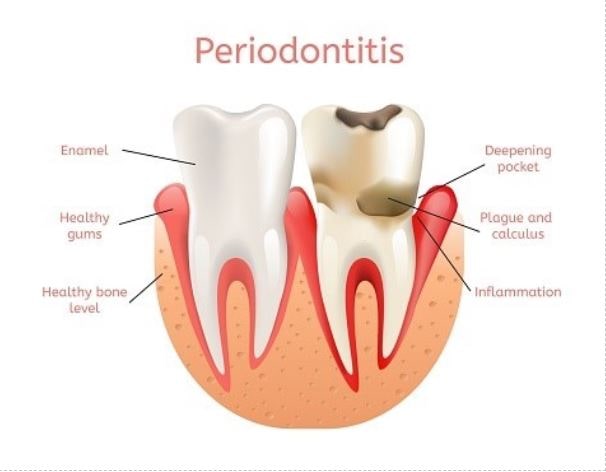According to a study, approximately half of the Americans thirty years old or above, develop some kind of periodontal disease.
The symptoms can range from a slight illness along with a hollow pocket formation near the teeth to serious health issues including loss of bone and systemic inflammation. In case of severe health issues, it is always better to take notice earlier so that you can prevent developing any health-related complications such as bone loss or cardiovascular disease.
The culprit behind periodontal disease is oral plaque. It is a bacterial biofilm with a complicated structure, and it has a high defensive mechanism against antimicrobial agents. Plaques release inflammatory cytokines and enzymes from cells that are responsible for maintaining immunity and tend to break down periodontal ligament, a tissue that keeps teeth in their place.


What Are The 4 Stages of Periodontal Disease?
There’s a higher risk of tooth loss at this stage. To prevent further damage, aggressive cleaning options are used, and to slow down the tissue loss, antibiotics like doxycycline are consumed.
Some studies suggest that periodontal disease can also be linked to the development of heart disease, one of the most common diseases afflicting people around the world. It is therefore important to take preventative steps as early as possible to mitigate any issues in the future!
Contact Rosenthal Family Dentistry in Sunrise, FL
If you believe that you are suffering from gum disease, we can help! At Rosenthal Family Dentistry, our team of dental professionals is experienced in offering a variety of dental solutions for any issue, including those who may be at different stages of gum disease. Our team has also proudly served families since 1981!
Contact Rosenthal Family Dentistry to schedule a consultation with one of our dentists in Sunrise, FL today! We look forward to meeting you!



